The Cognac category announces new head office for its interprofession in the heart of the city of Cognac
The Bureau National Interprofessionnel du Cognac or BNIC — the decision-making body for the Cognac sector — has launched a project for a new office campus, located in the heart of the city of Cognac, on the banks of the Charente river. The programme will deliver a new setting for collaboration, sharing and innovation, while exemplifying the sector’s reverence for the past and faith in the future.
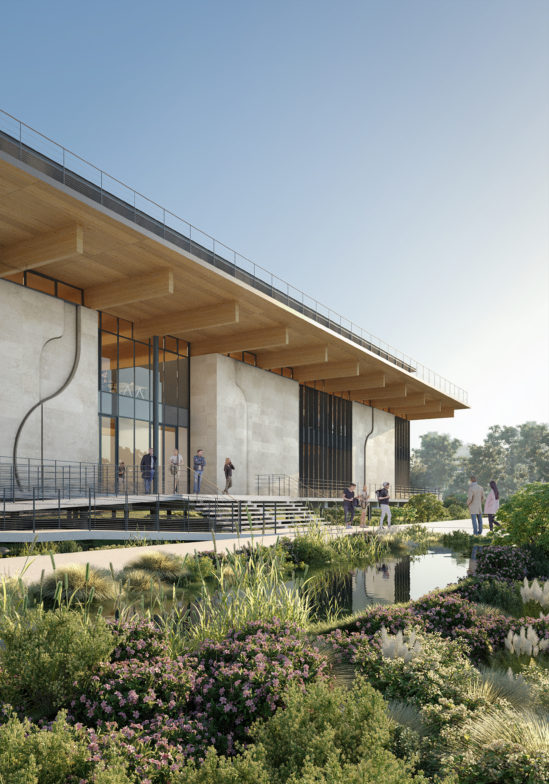
© Redman / Wilmotte & Associés Architectes
A place and a vision for the Cognac sector
The building will be open to professionals of the Cognac sector and will accommodate more than 100 BNIC collaborators — legal advisers, engineers, technicians, communicatio managers, data analysts, administrative personnel, IT staff, etc. It will also be home to the wine-growers’ and wholesalers’ trade unions. Situated in the heart of the Cognac appellation area, the project will contribute to the region’s appeal and growth.
Following a design-build competition, REDMAN Group — a multidisciplinary real estate company committed to inclusive and low-carbon cities — was chosen by the BNIC as project developer, in association with architecture firms Wilmotte & Associés Architectes and landscape design consultancy Sempervirens.
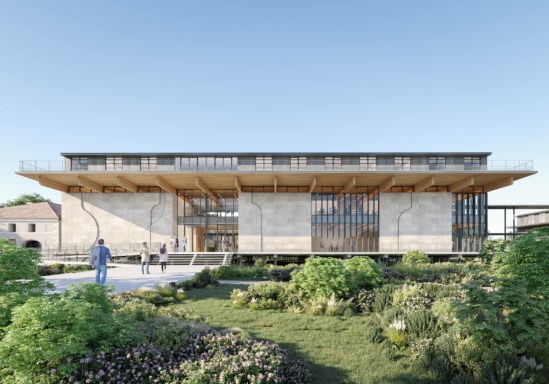
© Redman / Wilmotte & Associés Architectes
View from the banks: a campus designed to blend in with older existing structures.
The project comes in the midst of a period of sustained growth for the category across international markets, with a view to supporting that development in a manner both sustainable and sensitive of the great challenges of our times. The sector is currently working actively towards a sustainable transition and wishes to implement a bold new R&D policy. The industry’s sustainability strategy will be coordinated from the new association head office, as will numerous other initiatives concerning the future of the industry and the global visibility of its products.
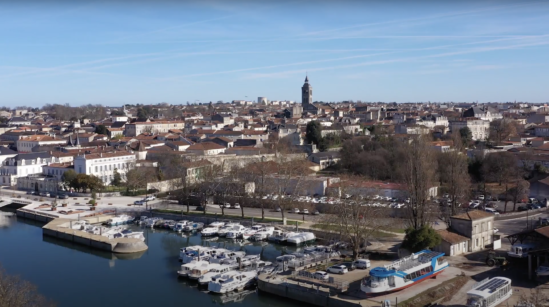
© Redman
View from above of location of future head office on the banks of the Charente river, near Cognac’s historic centre.
Designed not only as an environment to work, share and pursue the industry’s great scientific and technical ambitions, but also as a place to welcome private and institutional partners, the new head office will showcase the Cognac category’s commitment to sustainability and its aspirations to consolidate its ties with the region and the city of Cognac, and invest locally.
A project tailored to high local stakes
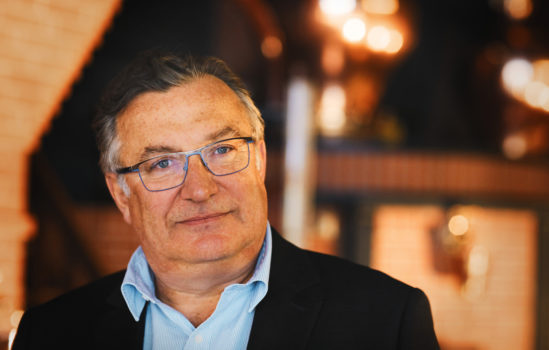
© Alberto Bocos Gil
The programme seeks to establish a new iconic centre for the global Cognac sector in its region of origin. Christophe Veral, President of BNIC, outlines the local aspects of the project:
‘After conquering the world, the Cognac sector is now looking to reconnect with its territory, to keep driving its growth and attractiveness.
Like generations before them, sector professionals today see this new architectural gesture as their contribution to the history of Cognac and the thousands-years-old city. The new head office will be a testament to our deep-rooted connection with the birthplace of the Cognac appellation. For Cognac to be found in the most beautiful places, in New York, Shanghai, or even Lagos, the magic has to happen here in Charente.’
Beyond the category’s vision, the architectural ambition encapsulated in the design will also bring a positive contribution for the city of Cognac and its global visibility. The new development will help promote the region as an area with strong innovative potential, and increase its visibility both domestically and worldwide.
The construction site will as much as possible work with local companies.
‘The construction of the new BNIC head office is part of a long-term city redevelopment and transformation programme. The establishment of this iconic building marks the renewal of the river banks and celebrates Cognac’s new connection with the Charente river. Long closed off on itself, the city of Cognac is now entering a new era as it opens up to the world.’
Morgan Berger, Mayor of Cognac
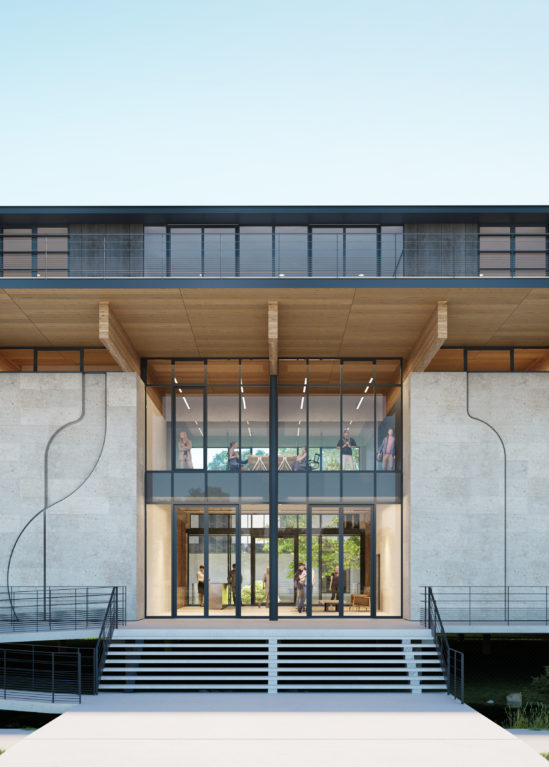
©Redman/Wilmotte & Associés Architectes
View of the main entrance and its engravings in the shape of Cognac bottles.
A cross-disciplinary and collaborative workplace
The future BNIC head office will consolidate the category’s capacity to envision its future and take initiatives to address the challenges of tomorrow.
Encapsulating a perfect combination of expertise, values and innovation, the campus will look to the future, delivering new office configurations for collaborative work.
The proposed design will feature spaces tailored to new workplace habits and practices, with flexible office environments, collaborative work spaces, cutting-edge technology, reception areas and interactive training facilities.
It will provide optimal working conditions for all BNIC elected representatives and employees. Additionally, office space will be offered to individuals and institutions who have long partnered with the interprofession on a range of scientific issues, and experts will be welcome on a more occasional basis. The campus will also be a research centre, with laboratories, as well as event and training venues available.
A sustainably minded programme
Designed as a resource hub for all sector professionals, the future campus will be home to new facilities designed to expand R&D operations, particularly on issues including environmental protection and the category’s sustainable growth: climate change adaptation, lean practices and better energy efficiency across value chains, and the development of new disease-resistant vine varieties.
The future BNIC head office will bring heightened visibility to the know-how associated with Cognac production, strengthen the interprofession’s control of production processes and contribute to the continuous improvement of technical and scientific knowledge strategic for the sector (process quality and safety, advocacy for A.O.C. Controlled Designation of Origin products, consumer protection). With this project, the association is hoping to support industry growth while maintaining product quality, merchants competitiveness for winegrowers and wholesalers, and guaranteed access to the Cognac market.
The space will also offer training programmes, promote transmission of knowledge and know-how, and support education and awareness initiatives targeting audiences outside the category.




